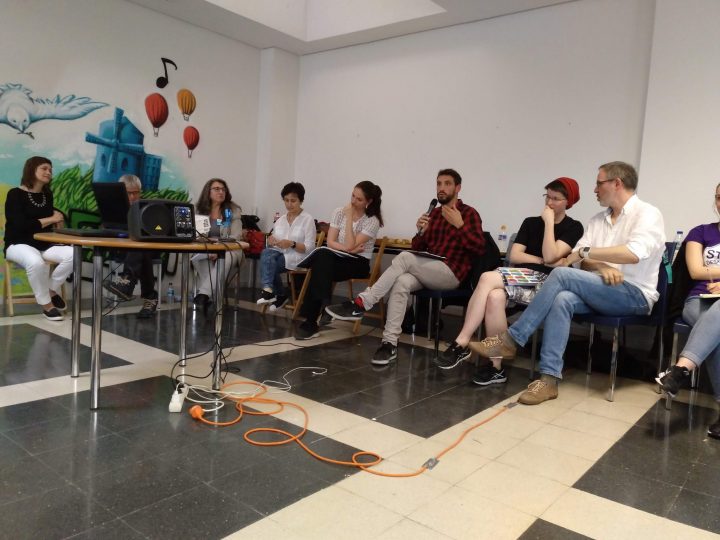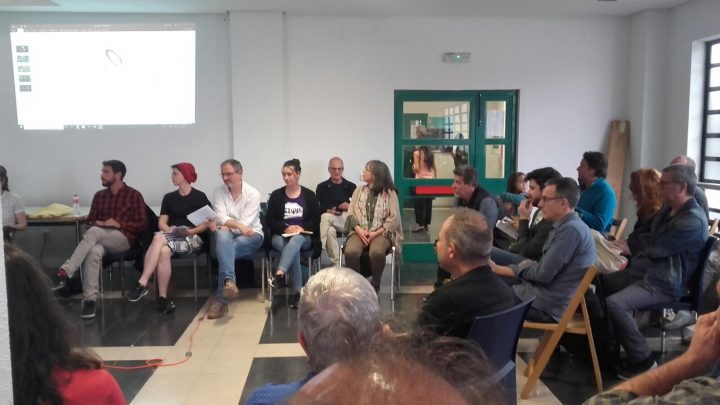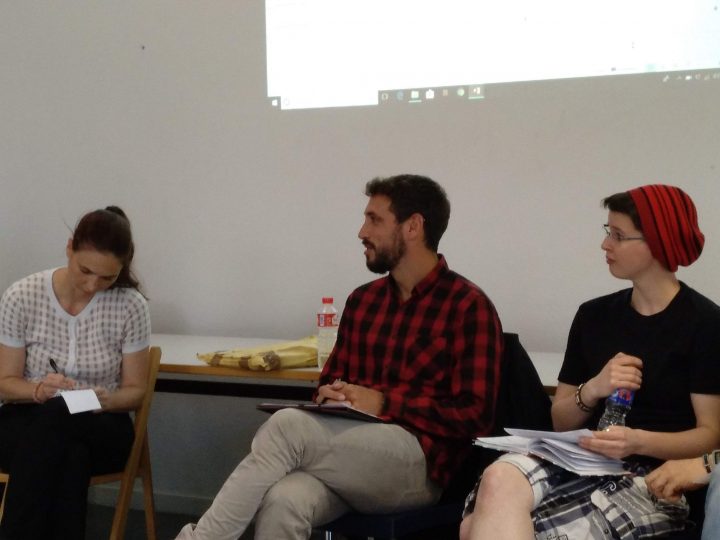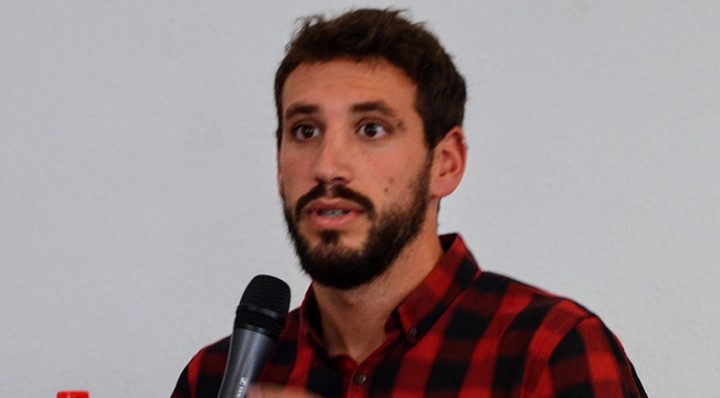Daniel Cruz is a specialist in Communications, European activist, trade unionist, member of DiEM25 in the local group in Barcelona and Pressenza collaborator. He took part in the European Humanist Forum, recently held in Madrid, as a speaker at the “Independent Journalism and Social Activsm” round table.
EHF2018: What is the DIEM25 project?
DC: DiEM25, although it can be considered a social movement, is also a political movement because of the impact it wants to have. It is a movement formed in February 2016, one of its founders is Yanis Varoufakis, who from his experience as Greek Finance Minister and following the crisis in Greece decided to leave the existing political parties and create something new in Europe from below. There are currently around 70,000 members organized into various local groups, for example in Madrid there are two, in Barcelona there is one, also in the Canary Islands and Andalusia, in Spain as well as throughout Europe.
Of all the current movements, we are the most ambitious, because if others want to change concrete laws, we want to change the European Union. DiEM25 stands for Democracy in Europe Movement 2025. The idea is that if the policies that we will present to in the 2019 European Parliamentary elections are not implemented, Europe as we know it will disintegrate and any of the countries of the Union could end up having the crisis that occurred in Greece. DiEM25 is organized in pillars of work to be able to make proposals in all areas.
What is the role of independent media in social transformation?
It is the independent media that must give a voice to those who want to change the status quo. We as a social political movement want to change the status quo of the current power. It doesn’t cost much to communicate our proposals, I don’t think anyone disagrees with the proposals that DIEM25 outlines at the social and political level. Some of the changes we are proposing take time and are difficult to achieve, but others are simple, they only require will, to reach some agreements between several states, or even within the same state.
For example, in the case of the digital payment platform we have the possibility of ending the banks’ monopoly on payments in Europe, this is an example that could be implemented tomorrow. I mean, we are realistic about the possibilities for change in Europe; some can be realised immediately, while others will take longer.
The other day we had a meeting in Barcelona and we invited several groups in different struggles: the delivery riders, the dockers and contract cleaners and their demands are that the existing regulations be complied with, that is to say, the European directives already contemplate all their demands. For example, the contract cleaners ask to be considered part of the company and not as external services. This regulation already exists, the problem is that it is not being complied with. DiEM25 proposes to require compliance with European directives.
In relation to the motto of this forum: “what unites us”, what common proposal could we implement in the future?
At the level of communication, one of the most illustrious members of DiEM25 is Julian Assange, who is being held incommunicado at the Ecuadorian Embassy in London. He is one of the clearest examples of the lack of freedom of expression that Europe is currently experiencing and that we also see in other examples such as the imprisoned rappers. But the same is also happening in Brazil, with Lula da Silva in prison, or in Ecuador, with Rafael Correa persecuted for an accusation that has not been proven. The lack of freedom of expression is becoming a global problem.
I got to know about Pressenza and Humanism at a conference in Barcelona in which representatives of independent media and social movements met. I was invited to take part in a panel. It’s important that we get together, we won’t get anywhere if we are apart. DiEM25 was born to bring together social movements that have a concrete struggle and want to carry it out at the political level.










